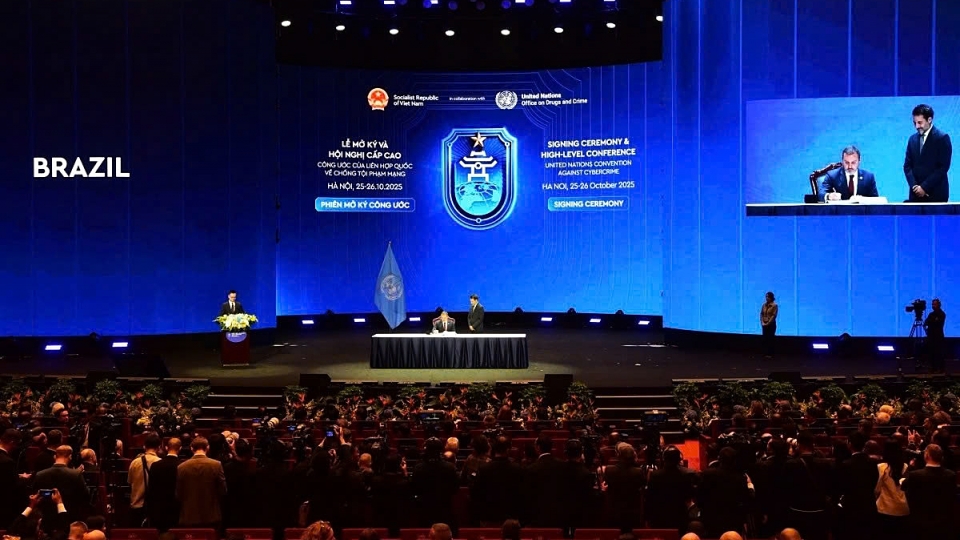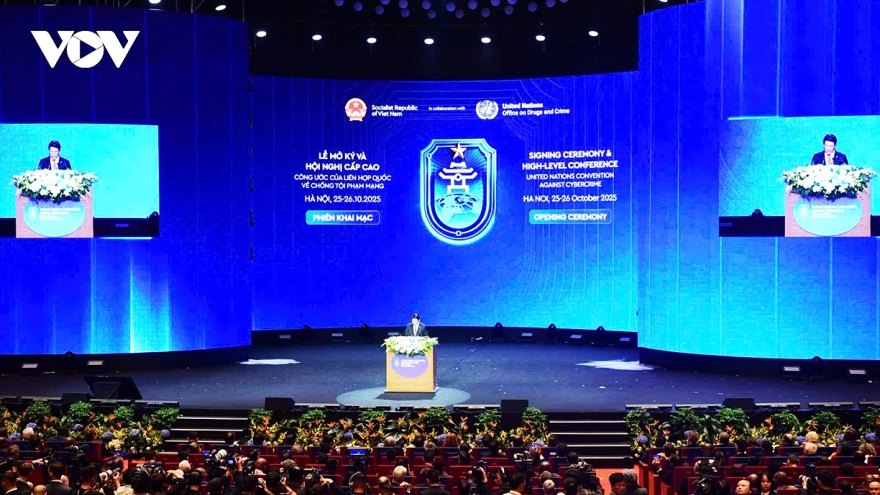Hanoi Convention: Discussion shares experience in collecting electronic evidence
A discussion on experience in investigating and collecting electronic evidence in cases involving virtual assets and money laundering was held on October 25 as a side event of the Signing Ceremony and High-Level Conference of the United Nations Convention against Cybercrime (Hanoi Convention).
At the discussion, moderated by Delphine Schantz, Regional Representative of the UN Office on Drugs and Crime (UNODC) for Southeast Asia and the Pacific, participants agreed that while cryptocurrencies offer legitimate benefits to the digital economy, they are also being exploited by cybercriminals for illicit activities such as drug trafficking, money laundering, and terrorism financing.
The collection of digital and electronic evidence poses increasing challenges for law enforcement forces worldwide, requiring a unified legal framework to investigate, freeze, and confiscate assets effectively.
The United Nations Convention against Cybercrime is therefore expected to help harmonise laws, establish international standards, and build a round-the-clock cooperation network to support member states in cybercrime investigations, they underscored.
From the private sector's perspective, Jarek Jakubczak at Binance emphasised that most cross-border investigations today depend heavily on close coordination with technology companies and digital exchange platforms.
Jakubczak noted that in nearly all transnational investigations he has handled, data from the private industry is indispensable. However, cross-border investigations remain complicated and often discourage law enforcement officers once suspects are found to reside in different jurisdictions. Therefore, the convention’s focus on strengthening public–private cooperation is essential to detect and combat cybercrime effectively.
As cyberspace becomes increasingly sophisticated, enhancing international cooperation, particularly between public authorities and private enterprises, will be key to ensuring the effective enforcement of the Hanoi Convention and safeguarding a secure, transparent, and resilient digital environment worldwide, he emphasised.
At the session, a representative of the State Bank of Vietnam (SBV) reported that in 2024, its Anti-Money Laundering Department reviewed over 400 suspicious transactions related to virtual assets, coordinating with relevant authorities for verification and action in line with the law.
On June 14, 2025, Vietnam’s National Assembly passed the Digital Technology Industry Law, the country’s first comprehensive law governing the digital sector. This was followed by Government Resolution No. 05/NQ-CP dated September 9, 2025, which approved a pilot programme for the virtual asset market, providing a vital legal foundation for managing Vietnam’s growing digital asset sector.
The SBV affirmed its continued commitment to collecting, analysing, and exchanging information on suspicious transactions, developing technical infrastructure, strengthening both domestic and international cooperation, and strictly handling violations in accordance with the law.




